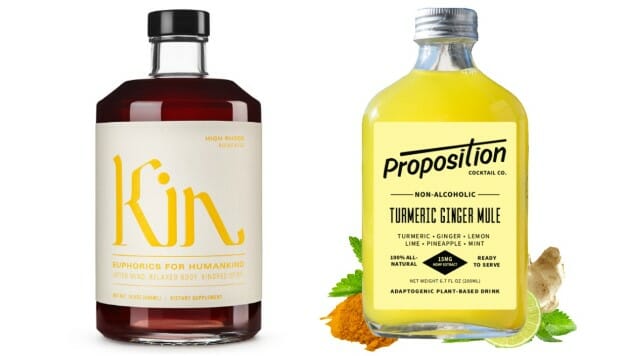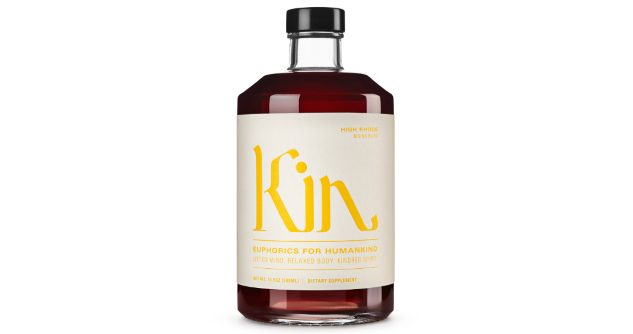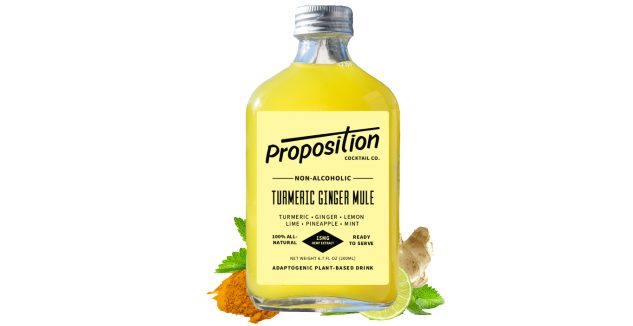Adaptogens: What Are They, and Why Do I Want Them in My Drink?
Photos via Kin Eurphorics, Proposition Cocktail Co.
Most of our medicines are derived from or inspired by plants and fungi. We get aspirin from willow bark, opioids from breadseed poppies, antibiotics from bread mold, valium from valerian roots. Western pharmacology is great at isolating, extracting and synthesizing compounds from plants, but it’s unwise to discount the health-protective and performance-enhancing benefits of whole foods.
If you’re like me, your social media feeds are filled with an increasingly aggressive scroll of ads for groups, life coaches, random bloggers and, not insignificantly, products inspired by the radical concept of not centering your social life on alcohol. (OK, it’s possible that is just me-occupational hazard. I digress.) More and more, words like “adaptogen” and “nootropic” enter the food and beverage (and supplement) marketing landscape. Although there are all kinds of debates to be had on what is and is not a reasonable claim to make on a given food-plant, constituent nutrient, tincture, extract or infusion, I’m the first to concede there are some inherently “adaptogenic” qualities to sobriety itself, so whatever you’re replacing some or all of your beer and bourbon allotment with, whether it’s lemon water, tea, or one of the rapidly proliferating apothecary-inspired mocktail brands-anything that isn’t booze is probably going to help Monday morning seem a little friendlier.
An adaptogen, simply put, is a substance with a broad spectrum of compounds proven to (or anecdotally associated with) help combat stress, by which I mean both physical and emotional stress. They often pull this off by lowering cortisol levels, which in turn has a beneficial effect on blood sugar, weight, digestion and overall energy levels. The term also covers many substances that improve cognition, decrease inflammation, boost immunity or help us to not feel fatigue. They’re complicated and in many cases we don’t fully understand what they do or how they do it; we just know there’s a statistically meaningful correlation between consuming them and feeling good (lookin’ at you, CBD). The category encompasses both plants (schizandra, astragalus, moringa, maca, rhodiola and holy basil are all easy to find in a health food store) and fungi (reishi, lion’s mane, chaga and cordyceps are the ones you’re most likely to find). They all have different effects, mechanisms, and flavors, but generally all of them help your body cope gracefully with physiological and emotional stress.
A “Nootropic,” meanwhile, is a substance that improves cognitive function, mood, or both-so there’s definitely overlap. You could say a nootropic improves brain function, while an adaptogen tones the endocrine system, but plants are complicated creatures and so are humans; affect one of these things and you almost by definition affect all of them. Some nootropics are whole plant extracts. Others include “smart drugs” and even things like Adderal, which is pretty much amphetamine salts. However, this category also includes caffeine, green tea, ginkgo biloba and ginseng.

